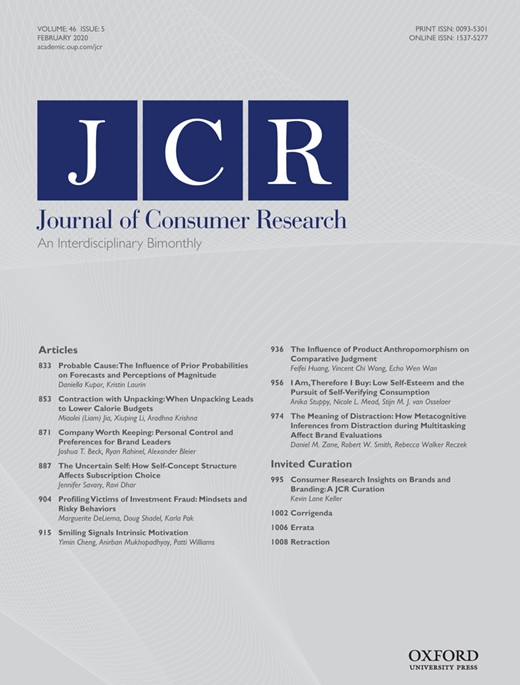-
Views
-
Cite
Cite
Marguerite Deliema, Doug Shadel, Karla Pak, Profiling Victims of Investment Fraud: Mindsets and Risky Behaviors, Journal of Consumer Research, Volume 46, Issue 5, February 2020, Pages 904–914, https://doi.org/10.1093/jcr/ucz020
Close - Share Icon Share
Abstract
Millions of Americans are targeted by investment scams, resulting in billions of dollars lost each year. Previous research indicates that investment fraud victims are more likely to be male, white, and married, and to have higher socioeconomic status compared to the general US population, but little research examines what behaviors and mindsets differentiate them from other investors. A telephone survey was administered to 214 investment fraud victims and 813 general investors recruited using random digit dialing. Based on the opportunity model of predatory victimization, the aim was to identify differences in investment behaviors and psychological mindsets that may affect exposure to investment scams and make individuals more attractive and susceptible targets. In addition to being older and male, victims were more materialistic than general investors and were more frequent stock traders, and purchased more investments sold through unsolicited calls, emails, television advertisements, or “free lunch” seminars, but were less likely to invest based on a social network member’s recommendation. As more retirees begin to take on managing their retirement assets, many may be tempted by unreasonable investment returns promised by unscrupulous brokers. Findings point to specific areas where investor education is needed to counteract poor investment decision-making and risky mindsets.



